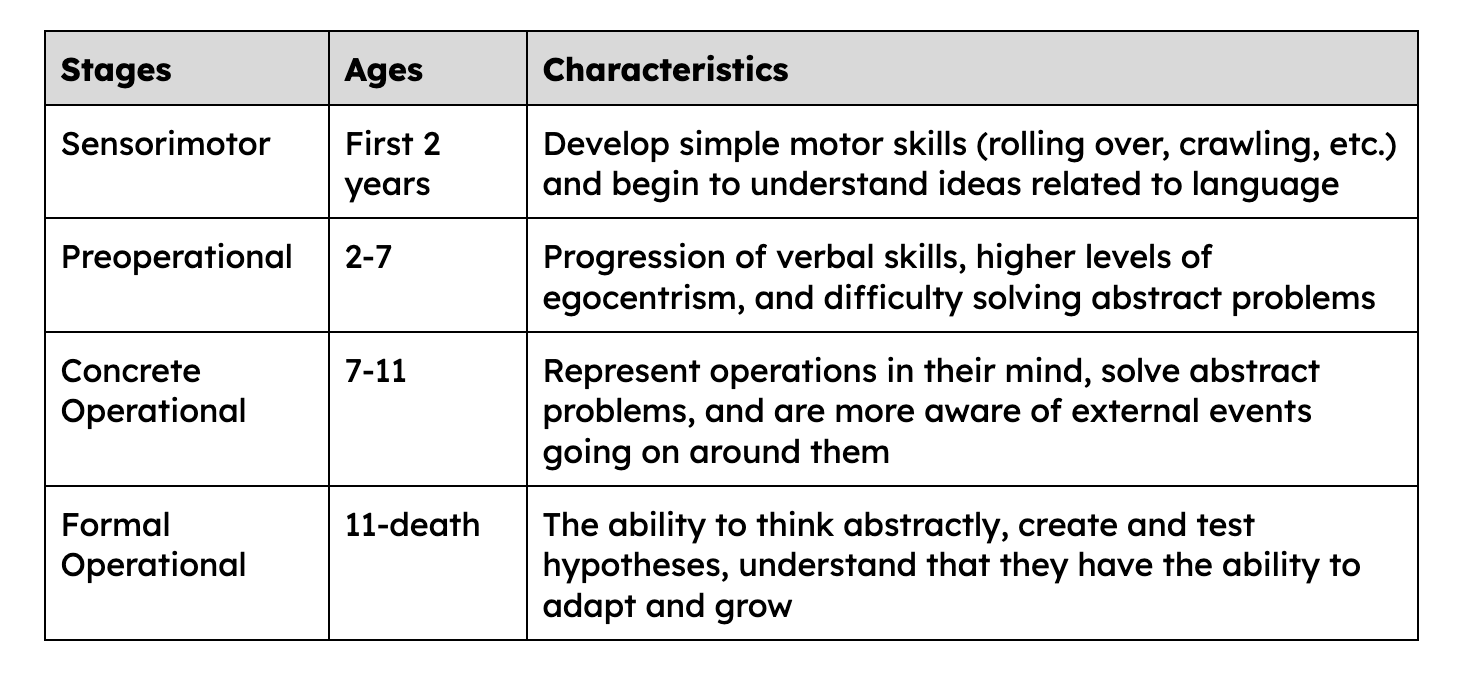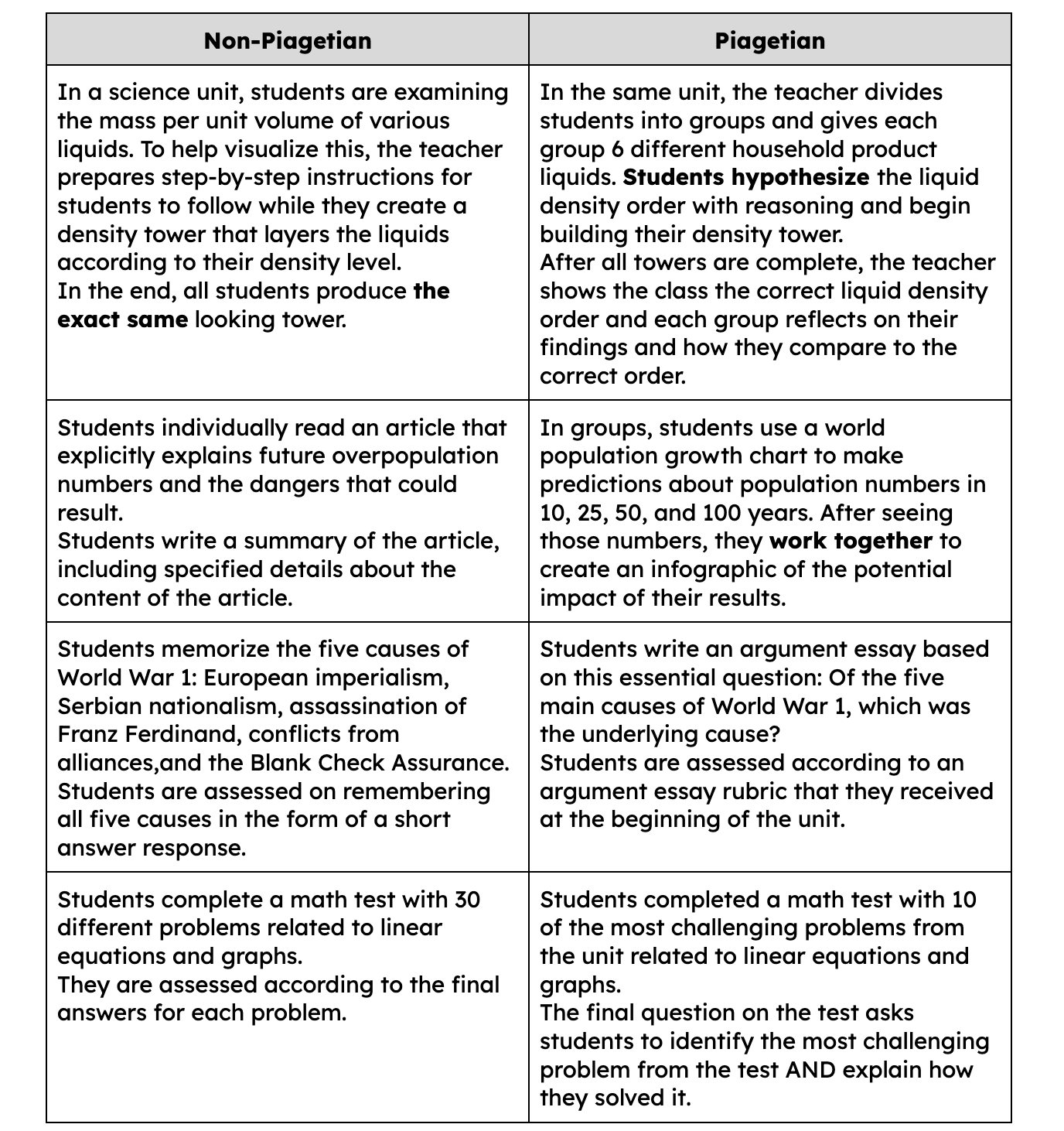Number 2 of the 6 Most Impactful Instructional Strategies
This article is the second in a series of the six MOST IMPACTFUL instructional strategies for educators from John Hattie’s study. To learn more about this study, read this introduction article and catch the first article here.
What is it?
John Hattie’s study unveiled that incorporating Piagetian programs in schools creates a student learning effect size of 1.28. (Remember, anything above 1.0 has the potential to increase student learning by 50%, which equates to nearly two grade levels per school year!
Jean Piaget believed in the importance of understanding proper cognitive development through four distinct stages:
According to Hattie’s findings, schools that understand and apply skills that are appropriate for students’ cognitive development see tremendous success in high levels of student learning.
Where’s the Research?
Hattie based his effect size on the meta-analysis of Jordan and Brownlee (1981) who examined the relationship between schools that incorporated Piagetian concepts and school achievement tests. It is important to understand that this is not a new education “fad” or “trend”; it’s a best-practice approach that has been known for 40+ years.
What does it look like in the classroom?
Most preschool and primary grades educators understand the importance of having students complete developmentally appropriate tasks. Students in these grades should be learning through discovery—manipulatives, field trips, working in groups, dramatic play, etc. They also realize that students develop at different rates and that speeding up a child’s development can actually be a hindrance to their learning.
The more neglected aspect in education (and the power of Piagetian programs) happens at the final level of Piaget’s cognitive development stages. Starting around 5th grade (yes, 5th grade)and continuing through high school, students should be given the tools, resources, and tasks to practice abstract reasoning and challenged to complete a variety of high-level cognitive tasks:
Reflection Time:
How do you (teachers in grades 5-12) appropriately incorporate abstract thinking with your students?
What is one change you can make to better channel the power of Piagetian programs to impact student learning?
———————
Find this article helpful?
Sign up to receive our weekly newsletter. You’ll get every new article and resource straight to your inbox on Fridays.
We hope these resources bless your schools and your work!



